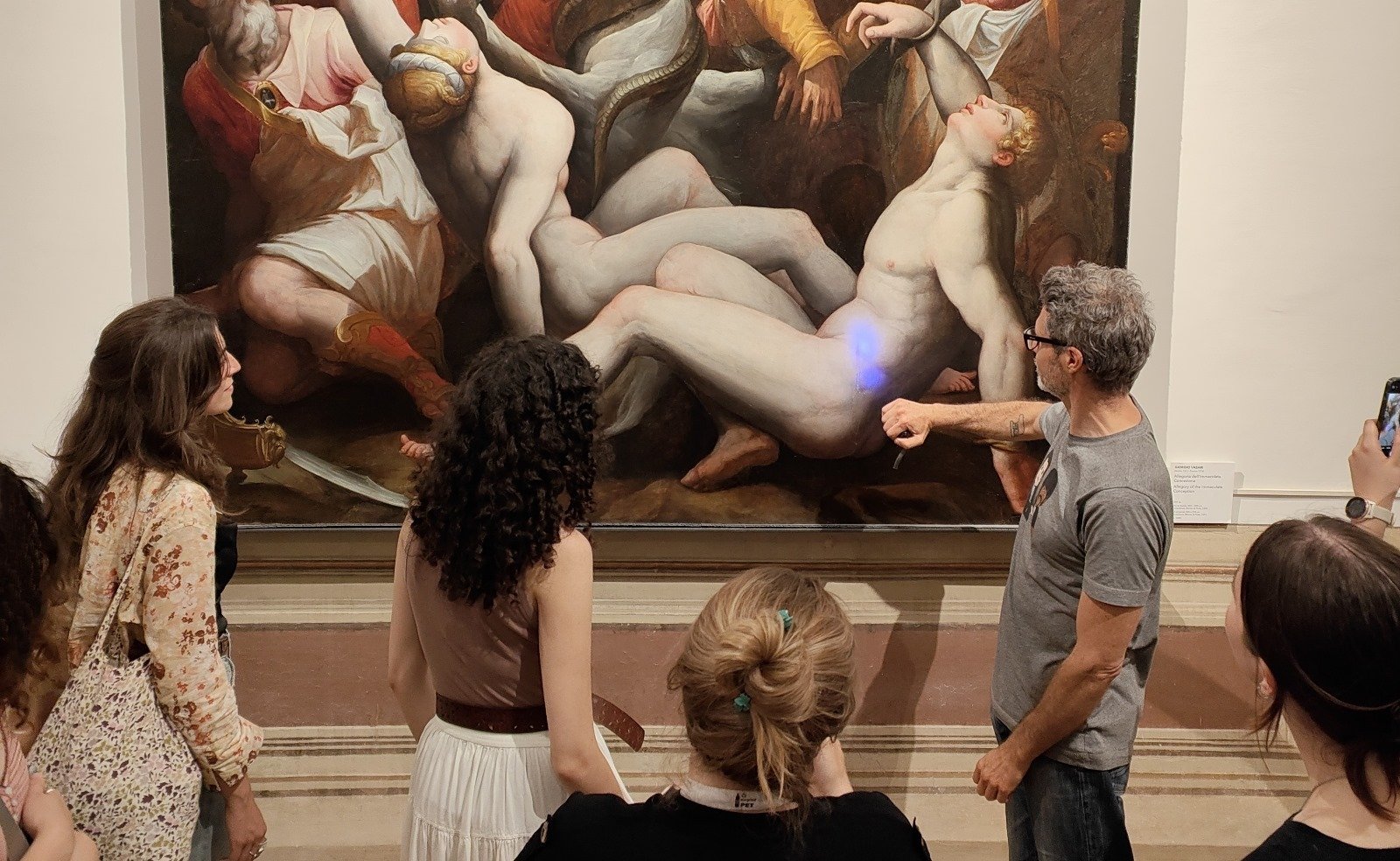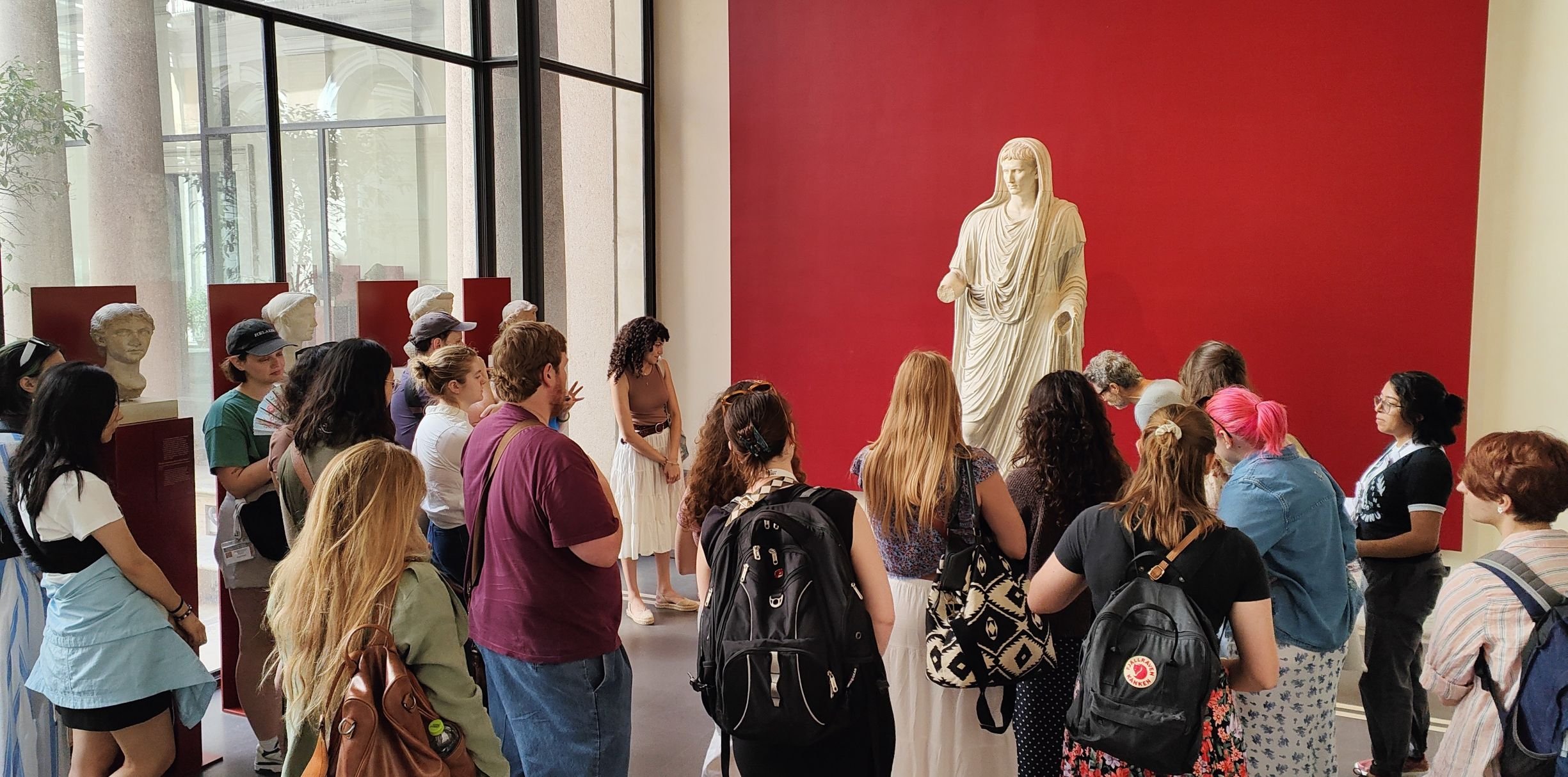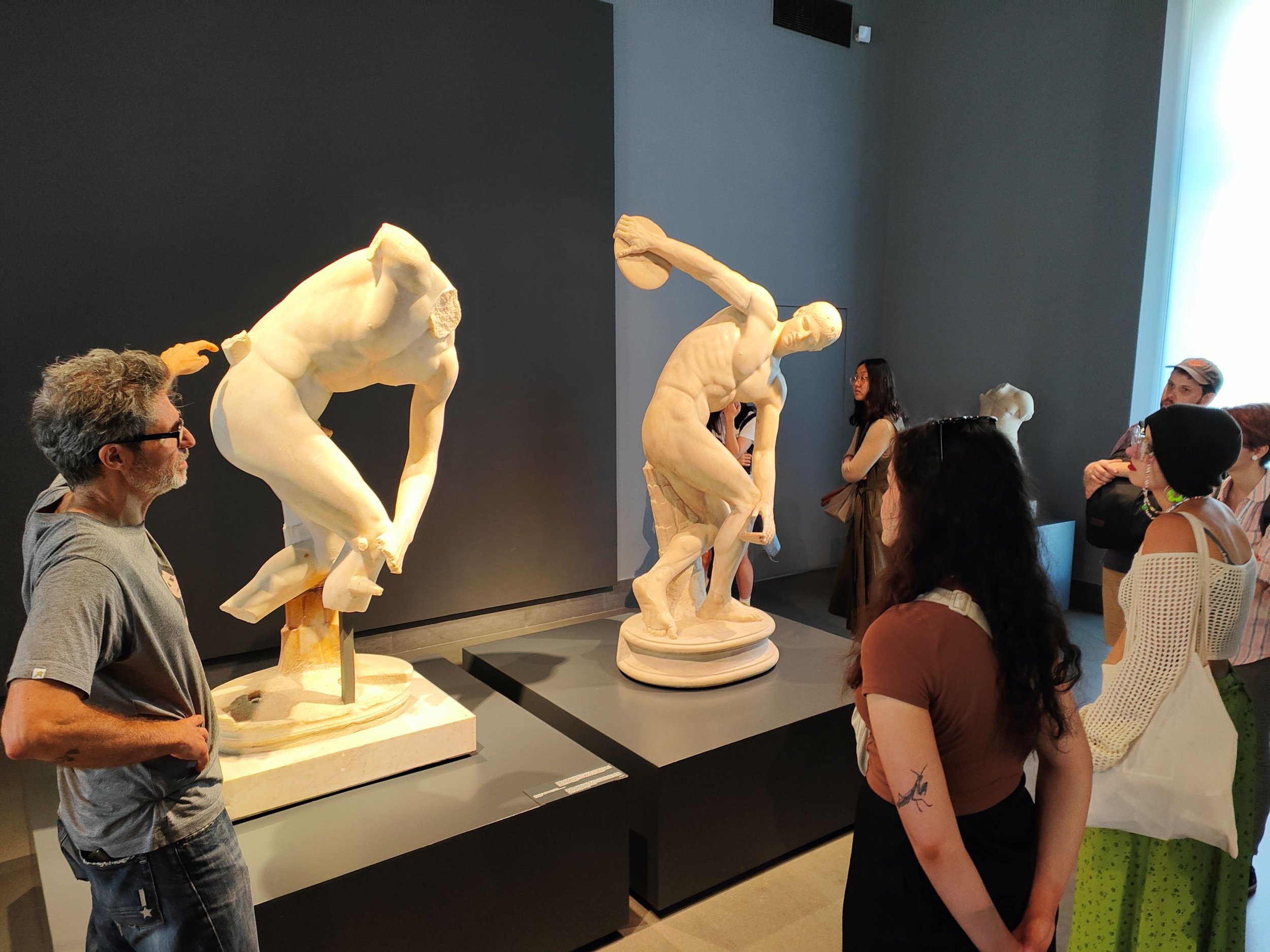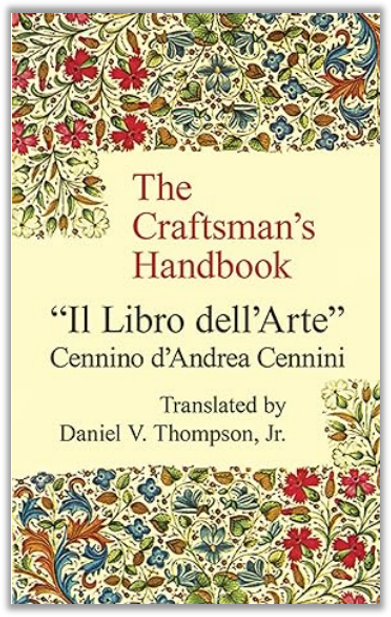Amelia International Conservation Studies
History, Theory and Ethics of Restoration
Summer Semester 2026
Mon, June 8 - Fri, Jul 3, 2026 (four weeks)
Amelia, Italy
Meets daily: Monday – Friday, 10:30 AM – 12:00 PM (4 weeks)
Afternoon Workshop: Monday - Friday, 2:00 PM - 6:00 PM (4 weeks)
Location: Our classroom for both lectures and workshop are situated within the cloister of St. Augustine Church, a 13th-century gem consecrated in 1288, with a Romanesque-Gothic façade).
Lead Instructor: Alberto Sucato
No prerequisites required.
Student Learning Outcomes:
By the end of the course students will be able to:
- recognize the principal processes of alteration and deterioration;
- trace the historical developments of conservation ethics and practice;
- outline the most important conservation methods and procedures;
- develop a critical approach to present-day conservation issues.
Format:
For the most part, classes will consist of a lecture followed by a discussion. For that purpose, readings and lecture material will be handed to students in advance.
Going beyond the material aspects of restoration, these lecture/discussion classes examine the various social goals, motivations, approaches, and ethical and philosophical issues that guide the complex process of preserving cultural heritage. Various topics on preventative conservation, conservation, and restoration of traditional and contemporary materials as well as ‘new’ and technology-based media will provide an insight into the ample world of restoration.
Grading:
Grading will be based on attendance, class participation, written assignment and class presentation, as indicated:
Attendance and participation: 40%
Written assignment and class presentation: 60%
Topics Discussed in Course:
An approach to conservation of art.
This course proposes the consideration of works of art as the outcome not only of the creative talents of the artists, but also as the result of their highly technical skills. Artists were very well trained and qualified artisans, capable of mastering manufacturing techniques and of handling materials to achieve the aesthetic results prefigured in their minds.
Through the examination of the main artistic techniques used in the past, the course emphasizes the physical complexity of an artwork. During their lifetime, works of art, both durable and delicate in nature, undergo alterations and deteriorations whose major causes and processes will be discussed during the course.
Technical and practical aspects of conservation will be privileged topics, but attention will also be dedicated to theoretical, ethical and historical aspects of the discipline.
All subjects discussed will be emphasized by examples taken from major works of art that have undergone recent major restorations.
Readings:
Readings will be handed in advance. Some of them will be obligatory texts while additional readings will be provided as optional. Students may be asked to present a short oral summary of one of the essays.
Recommended Readings:
1. Laura Mora, Paolo Mora, Paul Philippot, The conservation of wall paintings, Butterworth Publishers, London 1984
2. Jill Dunkerton, Susan Foister, Dillian Gordon, Nicholas Penny, Giotto to Dürer. Early Renaissance Painting in The National Gallery, Yale University Press, New Haven and London in association with National Gallery Publications Ltd, 1991
3. G. M. Helms, The Materials and Techniques of Italian Renaissance Sculpture, in Looking at Italian Renaissance Sculpture, ed. by. Sarah Blake McHam, Cambridge University Press, 1998
4. Antonella Fuga, Artists’ Techniques and Materials, The John Paul Getty Museum, Los Angeles 2006
5. Ernst Kitzinger, Mosaic technique, in Encyclopaedia of World Art, vol. X, McGraw-Hill publ., London 1965
6. Orietta Rossi Pinelli, The Surgery of Memory: Ancient Sculpture and Historical Restorations (1986), selected excerpts, in Historical and Philosophical Issues in the Conservation of Cultural Heritage, ed. by Nicholas Stanley Price, M. Kirby Talley jr., Alessandra Melucco Vaccaro, The Getty Conservation Institute, Los Angeles 1996
7. Marion True, Changing Approaches to Conservation, in The History of Restoration o Ancient Stone Sculptures, Papers delivered at a Symposium at J. Paul Getty Museum, 25-27 October 2001, The J. Paul Getty Museum, Los Angeles 2003
8. Marguerite Yourcenar, That mighty sculptor. Time, selected excerpts, in Historical and Philosophical Issues in the Conservation of Cultural Heritage, ed. by Nicholas Stanley Price, M. Kirby Talley jr., Alessandra Melucco Vaccaro, The Getty Conservation Institute, Los Angeles 1996
9. Cesare Brandi, Restoration and Conservation: general problems, in Encyclopaedia of World Art, vol. XII, McGraw-Hill, New York, Toronto, London 1966
10. Paul Philippot, Historic Preservation: Philosophy, Criteria, Guidelines (1972), selected excerpts, in Historical and Philosophical Issues in the Conservation of Cultural Heritage, ed. by Nicholas Stanley Price, M. Kirby Talley jr., Alessandra Melucco Vaccaro, The Getty Conservation Institute, Los Angeles 1996
11. Giorgio Bonsanti, Theory, Methodology and Practical Applications – Painting Conservation in Italy in the Twentieth Century, in Early Italian Paintings: Approaches to Conservation, Proceedings of a Symposium at the Yale University Art Gallery (April 2002), ed. by Patricia Sherwin Garland, Yale University Press, New Haven and London 2003
12. ed. by Alison Henry, Stone Conservation. Principles and Practice, Donhead Publishing, Shaftesbury 2006
Description of Assignments:
Class discussion of reading material
Term paper: 5-page paper, to be presented to the class for discussion. The written assignment consists in an essay on a chosen topic (to discuss individually with the instructor).












